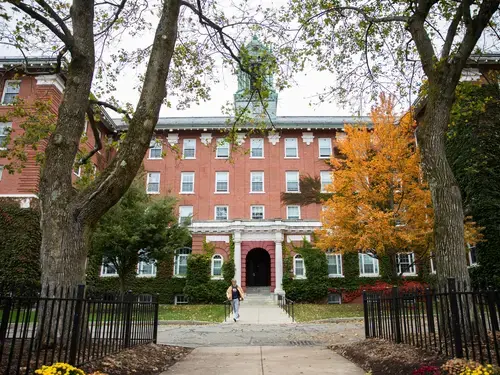What is a Timely Warning?
The Clery Act requires institutions to alert the campus community to certain crimes in a manner that is timely and will aid in the prevention of similar crimes. Although the Clery Act doesn’t define “timely,” the intent of a warning regarding a criminal incident(s) is to promote safety. This means that a warning will be issued as soon as pertinent information is available.
Timely Warnings are generally issued via email messages to students and employees.
The three criteria for determining the issuance of a Timely Warning are:
- A Clery Act crime has been reported; and
- The crime occurred in or on the institution’s Clery geography; and
- The crime represents a serious and continuing threat the students and employees.
What is Timely?
The Clery Act doesn’t define timely. The intent of a warning regarding a criminal incident(s) is to enable people to take measures that promote their safety. Again, this means that a warning will be issued as soon as pertinent information is available. Generally, there is no allowance for taking time to review video footage, interviewing involved parties beyond the initial report, or completing an investigation, etc. Even if all of the facts surrounding a Clery Act criminal incident that represents a serious and continuing threat to students and employees are not available or known, a Timely Warning must be issued.
What is Clery Geography?
Institutions must disclose statistics for reported Clery Act crimes that occur (1) on campus, (2) on public property within or immediately adjacent to the campus, and (3) in or on non-campus buildings or property that the institution owns or controls. Timely Warnings are issued when pertinent information becomes available for those specific Clery Act crimes that occur in the institution’s Clery geography and that represent a serious and continuing threat to students and employees
On Campus Property is defined as:
Any building or property owned or controlled by an institution within the same reasonably contiguous geographic area and used by the institution in direct support of, or in a manner related to, the institution’s educational purposes, including residence halls; and
Any building or property that is within or reasonably contiguous to the area identified in paragraph (1) of this definition, that is owned by the institution but controlled by another person, is frequently used by students, and supports institutional purposes (such as a food or other retail vendor).
Public Property is defined as:
All public property, including thoroughfares, streets, sidewalks, and parking facilities, that is within the campus, or immediately adjacent to and accessible from the campus. This is often referred to as “sidewalk-street-sidewalk” for public property that borders a campus boundary. Holy Cross does not have any public property within the campus. The public streets that may intersect those streets and roadways that immediately border the campus are not part of the “public property” definition for Clery Act purposes.
Public property refers to property owned by a public entity, such as a city or state government. It should not be confused with public space or property used or occupied by members of the public. An open lobby in Hogan may be considered public space, but it is not public property since it is not owned by a city or state government.
Non-campus Property is defined as:
Any building or property owned or controlled by a student organization that is officially recognized by the institution; or
Any building or property owned or controlled by an institution that is used in direct support of, or in relation to, the institution’s educational purposes, and is frequently used by students, and is not within the same reasonably contiguous geographic area of the institution.
Is the Incident a Clery Crime?
The Clery Act requires institutions to issue a Timely Warning to notify students and employees whenever a specific crime has occurred and the threat is determined to be serious and continuing. This notification is required for certain crimes that are reported to campus security authorities, campus law enforcement, or local law enforcement AND are reported or believe to have occurred on campus, in a residence hall, non-campus building or property, or public property contiguous to campus. Timely Warnings are not limited to violent crimes or crimes against persons, and can be issued for threats to persons or to property such as on-going burglaries with a similar pattern.
Clery Act Crimes include, but are not limited to:
- Criminal Homicide
- Sex Offenses (Rape, Fondling, Incest, Statutory Rape)
- Robbery
- Aggravated Assault
- Burglary
- Motor Vehicle Theft (not theft from a motor vehicle)
- Arson
- Hate Crimes
Is There a Serious or Continuing Threat?
This decision is made on a case-by-case basis in light of all the facts surrounding the crime, including factors such as:
- Are the students and employees at risk of becoming victims of a similar crime?
- Has the perpetrator been identified or has the perpetrator been apprehended?
- Does the incident appear to be a one-time occurrence or fall into a pattern of reported crimes?
Example: A student sets some posters on fire after the homecoming football game-- the arsons are probably a one-night event. However, if an unknown person is randomly setting fires on campus, there is a continuing threat.
Content of a Timely Warning, and Further Decisions for Issuing a Timely Warning
The Clery Act does not specify what information should be included in the Timely Warning, but it should include all necessary information for the campus
community to be aware and take measures to promote their safety.
The decision to issue a Timely Warning includes, but is not limited to:
- The nature of the crime
- The continuing danger to the campus community
- The possible risk of compromise to law enforcement efforts. This includes compromising efforts to:
- assist a victim;
- contain the emergency;
- respond to the emergency;
- or otherwise mitigate the emergency.
A Timely Warning will include:
- Type of reported crime
- Time and location of reported crime (specifics may not be reported to the police; if available, specifics may be withheld if disclosing them would identify a survivor or victim)
- Specific advice for the campus regarding steps to take to promote safety
Unless the below information will make an immediate, material difference for public safety, Timely Warning content will typically not include:
- Descriptions of alleged suspects based on perceptions of ethnicity or race;
- Wording that could lead members of the community to feel stereotyped, marginalized, or profiled
Other Types of Notifications
There may be occasions when the institution notifies students and employees of incidents that are not Clery Act crimes or do not occur in the College’s Clery geography. These decisions are made on a case-by-case basis in consideration of the information at hand. The purpose for these notification is to make community members aware of the incidents, to promote safety, and to encourage those with information to come forward. The notices are generally issued through email messaging.
Example: The college notifies the community of reports of an unknown suspect exposing himself to community members in a particular area. (Not a Clery crime) The college notifies students of door-to-door sales scams at off-campus student residences. (Did not occur in Clery geography)








